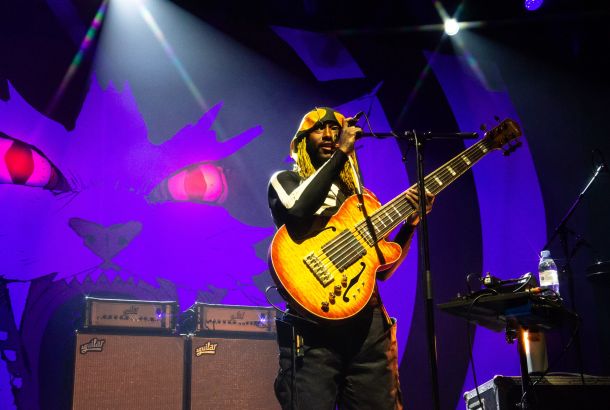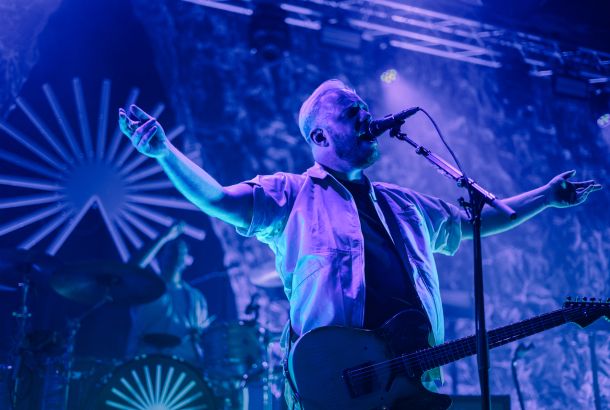‘The Zine is Dead’ – an NME Obituary

Last week saw the final print of the famous music magazine, NME. After 66 years and recently strangling sales struggles, the once thriving force for new guitar music gasped its final, physical-format breath to go online only.
One Guardian article suggested this was just another casualty of digitisation, another magazine that can’t keep up with the explosion of online content, or the declining purchases of actual paper. At the foot of the Guardian’s article was a plea for £1 donations to secure their own future, so their bitterness is understandable.
But a changing world of news accounts for only part of NME’s fall.
NME has benefited massively any time British rock music had an outburst. The eruption of pop in the 60’s, punk in the 70’s, Britpop in the 90’s and eventually indie in the 00’s would pump fresh life into the publication with each scene’s chart prominence.
But the magazine was as good as the bands it adored. And although the music evolved, the audience stayed as young and white as ever. When some in the editorial team suggested a focus on hip-hop and dance music in the 80’s, they ended up sticking to what they knew, making icons out of Morrissey and other puberty-mood heroes.
This might have been their biggest mistake. Although it must be said, riding wave after wave of white-boy guitar bands kept their head above water, and at the turn of the century, they helped curate an indie scene that would carry them right up to their grave.
If you stood in the middle of the 2000s and looked around at the indie music scene, the talent was undeniably staggering. And celebrating that was what NME did. The Libertines, Franz Ferdinand, Bloc Party, Arctic Monkeys and many others plastered the front page each week. The indie bands that the mag put its faith in were exciting and original enough to turn an NME into a music fan’s best friend.
In a way, this was NME’s hubris. Indie music has proven to be the furthest that creative, progressive guitar music in this country can go. NME committed themselves to this scene and even helped carry it. But once the big bands started to split, the fans split too, knocking up a coffin for the magazine that had brought them all together.
The fact is their role has been made redundant. Streaming services can tell you what’s new and what’s suited to your taste in a matter of clicks. Music mags like Noisey, Resident Advisor and Complex offer genre-specific entertainment that young people want and have far better online presence. ‘Fire In The Booth’ is more likely to catapult someone into the charts now. When it comes to musical hegemons, guitar music is almost all the way out; for now, hip-hop is here to stay.
“Rap the new rock’n’roll!” Right again Kanye.
If you look at the last few Reading Festival line-ups, you’ll see a clear transformation in young people’s taste. NME, who shared a stage with Radio 1, were rightfully at the forefront of accommodating new music. For three days in August, NME offered the best of indie rock for all the young people celebrating exam results. But now the line-up has shifted towards hip-hop, grime and dance in step with the preferences of Reading’s sixth form demographic. Whilst the festival has adapted, NME has not. This year, rather portentously, the stage was just called “The Radio 1 Stage”.
But even if their death was due, NME has undeniably served several generations of music lovers. If you’re skimming this then you probably picked up the magazine yourself at some point. You were part of the final wave of readership and you’ll be among the last to remember its relevance.
NME influenced my earliest taste in music as much as Zane Lowe, my dad and the Inbetweeners. I loved their appraisal of the most obscure, new, unsigned electronic duo from London each week as much as I loved disagreeing with their 10/10 reviews and arse-licking of the Gallagher’s. I haven’t read one for years, but for years I read them and consumed their reviews, recommendations and ranking lists wholeheartedly. I may have grown out of NME but they were, unashamedly, an informative part of my adolescence.
My first copy frontpage ‘Them Crooked Vultures’. There were a bunch of photos from a Muse tour, a few pages of Thom Yorke chatting shit; one edition is going on eBay for around £7. It was the kind of pompous poppy nonsense that drew me in and kept me drinking the drivel, just cos it was so damn reassuring to feel as if you were part of something beyond charts and radio; to see the entire upswing of bands like Biffy Clyro, Florence + the Machine and Peace; to sense a shared adoration for good quality music with endless others, transcending the shitty stuff friends played on the school bus, because you paid £2.50 a week and they’d never been to a gig in their life.
For people like me, NME will ultimately be no more than a fond memory. They’re sort of like that person you went out within year 10, your first love who you don’t talk to anymore and who probably isn’t as big a deal as you initially thought – but when you see them pop up on Facebook after all these years, you know they set you on course for the rest of your romantic life, and that’s how you’ll always think of them – and that’s cool.
There are countless kids like you and me who used to care about what NME had to say. None of those kids cares now. But that doesn’t mean we can’t mourn.
NME is no more. Their stubborn support of indie killed them. But the next time Jake Bugg comes up on shuffle, think about where that support took you, and the sort of music fan you’d be if it hadn’t been for NME.







